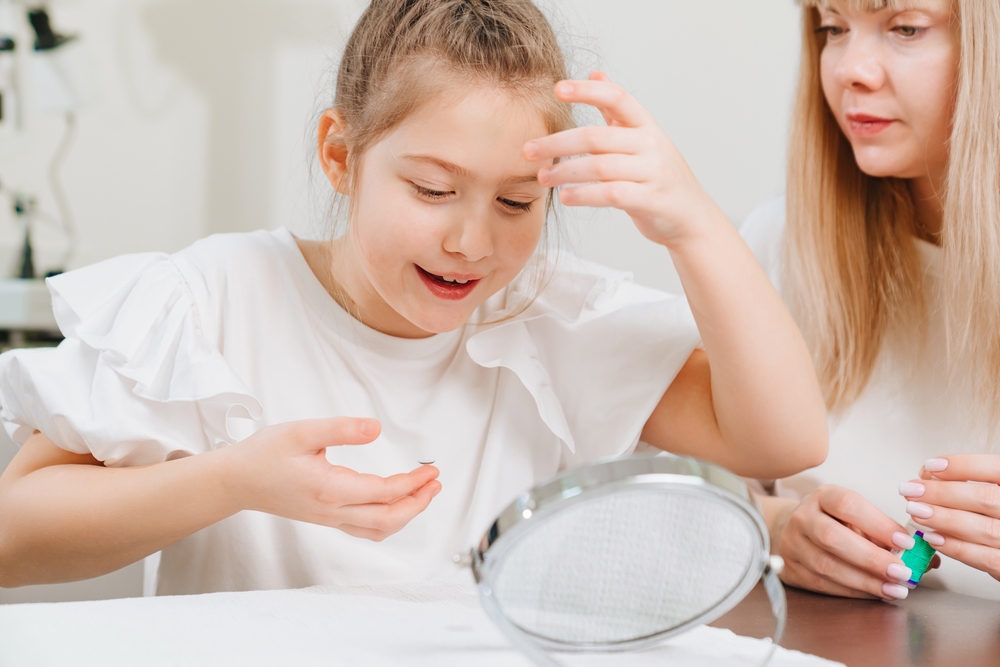
Understanding myopia in children is critical because it affects their ability to learn and interact with the world around them. If you've noticed your child squinting to see the television or complaining of headaches after reading, these could be signs of myopia. Early detection is important, as it can lead to better management of the condition.
The Importance of Myopia Management for Children
Myopia is not simply an inconvenience that can be corrected with glasses or contact lenses; it is a progressive condition that can have significant implications for a child's eye health. As myopia worsens, children are at an increased risk for developing conditions such as retinal detachment, glaucoma, and cataracts later in life.
Early intervention is key to slowing down the progression of myopia. By managing myopia effectively, you can help preserve your child's vision and reduce the risk of future eye diseases. Proper management can improve your child's quality of life, academic performance, and overall well-being.
Myopia Treatment Options for Children
When it comes to myopia treatment options for children, there is no one-size-fits-all solution. Treatment plans should be tailored to each child's specific needs and the degree of their myopia. However, there are several proven treatment options available that can slow the progression of myopia.
The first line of treatment typically involves corrective lenses. Glasses or standard contact lenses can help children see clearly, but they do not address the progression of myopia. Therefore, optometrists may recommend treatments specifically designed to slow myopia progression in addition to providing clear vision.
Exploring Orthokeratology (Ortho-K)
Orthokeratology, commonly referred to as Ortho-K, is a non-surgical treatment that involves wearing specially designed gas-permeable contact lenses overnight. These lenses gently reshape the cornea while your child sleeps, providing clear vision during the day without the need for glasses or contact lenses.
Ortho-K is particularly appealing for children because it offers the freedom from wearing corrective lenses during the day, which is beneficial for sports and other activities. Additionally, numerous studies have shown that Ortho-K can effectively slow the progression of myopia in children.
The Role of Atropine Eye Drops in Myopia Control
Atropine eye drops have emerged as another promising option for myopia control in children. Atropine is a medication that, when used in low concentrations, can slow the progression of myopia without significantly affecting vision or pupil size.
The treatment involves the daily application of atropine eye drops, typically administered at bedtime. While the exact mechanism is not fully understood, it is believed that atropine eye drops work by relaxing the eye's focusing mechanism, which in turn reduces the stress on the eye that contributes to myopia progression.
The Effectiveness of Multifocal Glasses and Contact Lenses
Multifocal glasses and contact lenses are yet another treatment option for managing myopia in children. These lenses have multiple prescription zones designed to correct vision at different distances, which can also help control the progression of myopia.
Multifocal glasses are particularly beneficial for children who spend a significant amount of time doing near work. The lenses can reduce the focusing demands on the eyes, which is thought to play a role in myopia progression. Similarly, multifocal contact lenses provide the same benefits but with the added convenience for active children.
Research has shown that multifocal lenses can slow down myopia progression in children by a significant percentage compared to traditional single-vision lenses. They are a viable option for many children and can be a part of a comprehensive myopia management plan.
Ensuring Clear Vision for a Bright Future
Myopia in children is a significant challenge, but with the right approach, its impact can be minimized. Whether through Ortho-K, atropine eye drops, multifocal lenses, or a combination of treatments, there are several effective ways to control myopia and safeguard your child's vision.
For further guidance on myopia management options for your child, schedule an eye exam at Dussan Eye Care in our Long Island City, New York, office. Please call 718) 784-3960 to book an appointment today.










